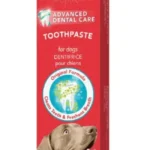You might be familiar with Kennel cough in dogs as a dog lover or owner. It is a respiratory infection that is quite common in dogs. Fortunately, it is treatable if caught early. This article will explore what causes kennel cough in dogs and how to best identify the signs and symptoms. We’ll also discuss treatments and prevention so you can keep your pup safe and healthy. Let’s dive in!
What is Kennel Cough and What Causes It?
Kennel cough, officially known as canine infectious tracheobronchitis, is a highly contagious respiratory disease among dogs. It is caused by numerous viruses and bacteria, including:
- Bordetella bronchiseptica
- Canine Adenovirus Type
- Parainfluenza Virus Canine
- Canine Influenza
Kennel cough is, therefore, caused by a combination of bacteria, viruses, and fungi in the environment. The most common form of the disease is due to canine parainfluenza virus (CPiV) and Bordetella bronchiseptica bacterium.
Signs and Symptoms of Kennel Cough
If you have had your dog cough, you must wonder if it is the dreaded kennel cough. “How can I tell if my dog has kennel cough?” Here is how to tell. The most obvious sign is a strong cough, often described as a high-pitched “honk” or a sound similar to a ‘reverse sneeze’.
Kennel cough in dogs symptoms can go beyond coughing to include:
- Sneezing
- Running nose
- Eye discharge
- Loss of appetite
- Lethargy
The symptoms of kennel cough can be mild or severe, depending on the underlying cause. In some cases, it can lead to pneumonia. Since kennel cough is highly contagious, keeping your dog away from other dogs is crucial. Veterinarians often diagnose kennel cough based on the symptoms and a physical examination of the respiratory tract.
The Reverse Sneeze: A Unique Symptom of Kennel Cough
Kennel cough in dogs sounds unique and might worry many dog owners because it sounds like a ‘reverse sneeze’. Unlike a typical sneeze, where air is expelled, a reverse sneeze involves a rapid and forceful inhalation.
During a reverse sneezing episode, your dog might stand still with its elbows spread apart, extend its head, and make a distinctive snorting sound. All these can be quite alarming to observe. Most pet owners mistake reverse sneezing for kennel cough as it has similar symptoms, including rapid inhalations through the nose.
Reverse Sneeze vs. Kennel Cough
A reverse sneeze, which is also the pharyngeal gag reflex, occurs when there is a spasm of the throat and soft palate. The dog will make loud snorting or honking noises as air passes through the narrowed airway. It happens when a dog exercises, eats, drinks, smells something familiar, etc. Though it can be alarming to witness since the symptoms appear similar to those of choking, reverse sneezing is not dangerous. Thus, it does not require treatment.
On the other hand, Kennel cough is an upper respiratory infection caused by Bordetella bronchiseptica bacteria. Dogs of any age can contract kennel cough. However, it is most common in dogs that stay in kennels or have recently been exposed to other dogs.
The cough can be accompanied by nasal discharge, fever, lethargy, loss of appetite, and coughing up blood. Kennel cough is treatable using antibiotics and supportive care and is typically not life-threatening. Vaccines are available to help prevent kennel cough infections. To further protect dogs from contracting kennel cough, owners should ensure their pet has regular health checkups and vaccinations. They should also avoid exposing their pups to other dogs that might have the infection.
The Highly Contagious Nature of Kennel Cough
Kennel cough in dogs is quite contagious. The pathogens responsible for kennel cough can travel up to 20 feet in the air. This demonstrates the highly infectious nature of this condition. Additionally, it’s worth noting that symptoms may not appear immediately after exposure. The incubation period of kennel cough can range from 2 to 14 days.
Therefore, it is a common health concern in spaces where dogs congregate—for example, dog parks, pet shops, boarding kennels, and dog shows. The condition is airborne and can be transmitted through droplets when an infected dog coughs or sneezes. However, it can also spread through direct contact or contaminated objects like water bowls or toys.
Dog owners need to exercise diligence in preventing the spread of kennel cough. This includes regular vaccinations, keeping your dog’s environment clean, and isolating infected dogs until they completely recover. Remember, while kennel cough is highly contagious, it’s also highly preventable with the right precautions.
Diagnosing Kennel Cough: Importance of Checking the Respiratory Tract
If you suspect your dog might have kennel cough, scheduling a vet visit for a proper diagnosis is important. Diagnosing kennel cough is critical to ensure your dog receives appropriate treatment and recovers quickly.
A diagnosis should be based on the clinical signs and symptoms and a thorough respiratory tract examination. A veterinarian typically listens to the dog’s chest using a stethoscope. They will then perform a tracheal palpitation by gently pressing the trachea to induce coughing – a clear sign of kennel cough.
In some cases, further diagnostic tests may be necessary. This is necessary, especially in cases where the cough persists for a long time or if the dog has other health conditions. These additional tests may include;
- A complete blood count
- A chest x-ray
- A bacterial culture from the trachea
These tests aim to rule out other potential causes of coughing, such as heart disease or a foreign body in the respiratory tract. They also help identify if a specific bacteria or virus is causing the illness.
The importance of checking the respiratory tract lies in its susceptibility to infectious agents. The trachea and bronchi in dogs are lined with cilia. Cilia are tiny hair-like structures that move wave-like motions to clear away mucus and foreign particles. When a dog has a kennel cough, the infectious agents damage the cilia. This causes inflammation and the characteristic cough observed in affected dogs.
In conclusion, diagnosing kennel cough involves carefully examining the respiratory tract. The examination helps isolate the cause of the cough and determine the most effective treatment. As always, early detection is crucial to prevent the spread of the disease. Early detection also ensures a swift recovery for your furry friend.
Preventing and Treating Kennel Cough
The best way to prevent the spread of kennel cough is through vaccination. It’s important to note that the kennel cough vaccination doesn’t completely prevent the disease. Nevertheless, it significantly reduces the severity and length of the illness.
Vaccinating your dog against canine adenovirus type 1 (CAV-1) and parainfluenza virus is recommended to prevent kennel cough. It’s important to note that the vaccine only provides partial protection and doesn’t prevent all cases of kennel cough. Dogs frequently in situations where they may be exposed to other dogs, such as at boarding facilities and dog shows, should be vaccinated annually.
Kennel Cough Treatment
Regarding treatment, cough suppressants and anti-inflammatory medications are administered to alleviate symptoms. Antibiotics may also be prescribed if the dog is affected by bacterial agents such as Bordetella bronchiseptica.
Depending on the case, some dogs may require hospitalization, while oxygen therapy may be needed in more severe cases. Keeping a dog with kennel cough away from other dogs is also important, as the infection is easily spread through contact or by sharing food and water bowls.
The primary goal of treatment is to alleviate the symptoms and prevent secondary infections. Cough suppressants are often prescribed to control the intense coughing, while anti-inflammatory medications are used to reduce inflammation in the respiratory tract.
Recovery
The earlier it’s treated, the better the outcome for your pet. With careful monitoring and appropriate treatment, most cases of kennel cough will resolve quickly and without complications.
Be sure to keep your dog away from other animals during recovery. Remember also to clean the area with an antiviral or antibacterial cleaner. Additionally, wash all of their bedding and food bowls in hot water. By following these steps, you can help prevent the spread of kennel cough to other pets in your household or neighborhood.
Provide plenty of rest to your pet and limit their exposure to other dogs until they recover. Make sure your dog has a warm, comfortable place to sleep and keep them well-hydrated. You should also avoid giving them treats or food scraps that could irritate their throat. Instead, feed them nutritious lean treats for dogs and ensure they get the right nutritional balance to aid their recovery.
Kennel Cough vs. Heartworm Cough
Kennel cough is a contagious respiratory infection that affects dogs and cats, commonly caused by viruses and bacteria. It is characterized by a dry, hacking cough and other symptoms such as sneezing and gagging. Kennel cough can be spread when an infected animal comes into contact with another healthy animal or through the air in enclosed spaces.
On the other hand, heartworm cough is caused by parasitic worms that invade a pet’s lungs and heart. The symptoms of this infection include coughing, wheezing, difficulty breathing, exhaustion after minimal activity, and weight loss. Heartworm infection can cause life-threatening conditions if left untreated.
The main difference between kennel cough and heartworm cough is the cause. A virus or bacterial infection causes kennel cough, while parasitic worms cause heartworm. Another difference is that kennel cough usually affects the upper respiratory system, while heartworm can affect multiple organs, including the lungs and heart.
Finally, kennel cough can be prevented with vaccinations and good hygiene, but it may require extensive treatment to cure if the infection has already taken place. On the other hand, heartworm requires regular preventative medication to protect against infection.
Vet-worthy kennel cough drops
There are several treatments available for this condition. One of the most popular treatments is kennel cough drops, designed to help manage the symptoms and reduce the severity of illness.
When choosing a kennel cough drop, choose one a veterinarian has approved. This ensures that the product contains ingredients that are safe for your pet. Vet-worthy kennel cough drops are also more effective in treating their condition.
Some of the top vet-worthy kennel cough drops are:
Dog Rocks
It is a popular choice among pet owners due to its natural ingredients. Dog Rocks contains eucalyptus oil, which helps reduce coughing fits and congestion. It also has garlic extract, which helps boost immunity and benefits pets with kennel cough.
VetOne Cough Drops
These cough drops contain a blend of herbs and minerals that can help reduce inflammation, nasal congestion, and coughing fits. Additionally, it helps nourish the lungs and boost immunity in your pet. It relieves coughs and nasal congestion while providing nutrition to the respiratory system. This product can help reduce symptoms such as fever, lethargy, and fatigue.
Vet-approved kennel cough drops are great options for helping manage this condition’s symptoms and keep your pet healthy. It is important to follow the instructions on the product label and administer these cough drops in moderation. Also, consult a veterinarian if your pet does not show improvement after treatment.
Can I Walk My Dog with Kennel Cough?
It depends on the severity of the cough. First, consult with your vet before taking your dog for a walk. Depending on the severity of the symptoms, your vet may advise you to restrict or completely avoid exercising your dog.
For instance, if your pet has difficulty breathing or a fever, it’s best to keep them indoors. Short walks are usually okay if the cough is in its early stages, and most vets will allow it. However, you should still observe your pet’s behavior while walking. If they experience difficulty breathing, it’s best to bring them home immediately and contact your vet for further advice.
It is also important to ensure that your pet gets plenty of rest during this time. This means limiting their activity level through walks and playtime.
Does Lysol Kill Kennel Cough?
Yes, but only under certain conditions. It should not be a substitute for proper medical care or treatment for Kennel Cough. However, it can help reduce the risk of infection by killing bacteria on surfaces your dog may have come into contact with.
Lysol is an effective disinfectant for cleaning pet bedding, toys, bowls, and other items. You should not apply Lysol directly on the skin or fur of your dog as it could cause irritation or harm. Additionally, do not spray it into the air, as it could lead to respiratory problems for both you and your pet.
When using Lysol, following the instructions on the product label is important. This includes wearing gloves, protective clothing, and a face mask to protect yourself from any potential.
Kennel cough French bulldog
The prevalence of Kennel cough in French bulldogs can vary. According to research conducted by the American Veterinary Medical Association (AVMA), there is evidence that the condition is more common in brachycephalic breeds, such as French bulldogs, due to their shorter snouts and narrow nasal passages.
Pet owners must know the risk of Kennel cough in French bulldogs. Vaccination is the most effective way to protect against the virus. Additionally, practice good hygiene when bringing your French bulldog to kennels or when outdoors.
Monitor your pet for any signs of Kennel cough. By taking the necessary steps to prevent and treat the condition, you can help keep your French bulldog happy and healthy.
How Do You Cure Kennel Cough In A Dog?
In addition to medical treatments, you can also use natural remedies such as honey and apple cider vinegar for your pet. Honey can help coat the throat and reduce inflammation, while apple cider vinegar helps kill off bacteria in the respiratory tract. Be sure to check with your veterinarian before administering any natural remedies.
It is important to practice good hygiene in your dog’s environment to prevent the spread of infection. This includes using a disinfectant on toys and bedding. It also includes washing hands after handling your pet or coming into contact with other dogs.
Following these steps can help ensure your pet recovers quickly and safely from kennel cough. You can treat kennel cough in 2-3 weeks with the right medication and proper care. Ensuring that your dog is properly vaccinated is also an important step in prevention. Talk to your veterinarian about which vaccinations are right for your pet and when they should receive them.
Can kennel cough go away on its own?
Yes, kennel cough can go away on its own. The symptoms of kennel cough usually resolve in two to three weeks without any medical intervention. However, if the infection is severe or lasts longer than a few weeks, it may be necessary to seek professional care.
How long does a dog kennel cough last?
The duration of Kennel Cough in dogs can vary greatly. Generally, it will last from seven to twenty-one days. However, severe cases may take longer.
Kennel cough charlotte
Kennel cough is a highly contagious respiratory infection that various viruses and bacteria can cause in dogs. The most common cause of kennel cough in Charlotte, NC, is the bacterium Bordetella bronchiseptica. Symptoms of kennel cough include persistent dry coughing, sneezing, and discharge from the eyes or nose.
How Long Can Kennel Cough Live On Clothes?
The virus-causing kennel cough can live on these surfaces for up to two months.





